Keep in mind, these aren’t intended as end-all, be-all definitions. They’re working definitions for pragmatic folks.
1) Acceptance – A legal term referring to the acceptance of a buyer’s offer by the seller. Acceptance is often preceded by a number of counteroffers between the parties.
2) Appraisal – A professional opinion of the value of the property. Most jurisdictions have careful rules defining who may call themselves an appraiser, and most lenders have a list of approved appraisers whom they use regularly. Typically, the lender making the new mortgage loan will require that the property appraises for at least as much as the purchase price. Occasionally, a buyer will require the same thing in an all-cash transaction.
3) Bridge Loan – Short term loans used to “bridge” any time gap between the sale of a home and the purchase of the next one. These loans can be valuable when escrow is delayed on the sale of a home and the seller has committed to the purchase of another home. Bridge loans are also known as ‘panic loans’ but can be a lifesaver.
4) Coinciding Settlements – When a buyer needs the funds from the sale of their prior home (which is under contract to be sold) in order to purchase their next home, they may well make settlement under their sale a contingency for settling on the home they are purchasing. In reality, the sales don’t usually coincide. They usually take place back to back. Funds from the first are often wire transferred to the second.
5) Closing – Depending upon the state you live in, Closing can have different meanings. Generally, the closing of a real estate transaction refers to the exchange of necessary documents, execution of the same, and transfer of money.
6) Comps – This term refers to the sales prices of similar properties in the area of a house in question. Comps are used to help determine the fair market value of a property.
7) Conditions – Any conditions which must be met before the sale can be consummated. Some typical conditions include things like the property’s appraising for the purchase price or more, the property’s being in good condition when a home inspection is done, the buyer’s loan is approved.
8) Condominium – A type of ownership in real property where all of the owners in a collection of properties jointly own everything except the interior of each property. Accordingly, the joint area is run by a homeowner’s association, which can assess fees to the owners for improvements, etc.
9) Contract, or Sales Contract, or Contract of Purchase and Sale – The agreement between buyer and seller. In most jurisdictions, it must be in writing in order to be enforceable. It covers such things as the identity of the property, the purchase price, any conditions of the sale, the settlement date or escrow period, when the buyer will occupy the property, etc.
10) Contract for Deed – a written document that provides that Deed does not pass to the buyer until the final payment has been made. In the event of default by the buyer, the property reverts to the seller.
11) Deposit, or Good Faith Deposit – an amount of money tendered by the buyer at the time a contract offer is made on real property. The contract spells out who holds it, and circumstances under which the seller gets it, and circumstances under which it’s returned to the buyer. Typically, the seller gets it as part of the purchase price at settlement, or as liquidated damages if the buyer defaults. The buyer usually gets it back if a condition of settlement is not met.
12) Deed – The written document which conveys title to real property. Some states are ‘record’ states and ownership is defined by the deeds being recorded at the courthouse in which the property lies.
13) Deed of Trust – The document which allows a third party to act for the lender should the lender need to foreclose on the property used as collateral for a loan.
14) Easement – Permission given to (or acquired by) someone who does not own a parcel of the property enabling that person (or entity) to use that parcel for a specific purpose. It may add or detract value. It may be neutral so far as the value of the property is concerned. Examples include easements to utility companies for the purpose of running power lines, easements to municipalities for running sewer lines, and an easement to a neighbor to use your driveway for ingress and egress to his property.
15) Encroachment – a building, fence, wall, driveway, etc. which is intended to be part of one property and is found to be on, or partially on, another property.
16) Escrow – Money and other items of value held by a third party for the benefit of the buyer and seller of the property. In California, items are accumulated in escrow for a stated period of time until all items needed to finalize the sale are in the hands of the escrow agent and properly processed. In Virginia, the items are accumulated but are not signed until everyone meets at the settlement table. Then the deed is signed, the lender releases funds, and so on. It is usually the next day before the change of ownership can be recorded at the courthouse, so while it isn’t customarily referred to that way, the settlement agent is usually an escrow agent for about 24 hours in Virginia.
17) Equity – The wealth value of a property for the owner. The equity in a property is equal to the fair market value minus any debts such as mortgages and taxes.
18) Good Title – Title to the real property being clear and clean enough that a title insurance company will insure it and a lender will make a loan with it as collateral.
19) Home Inspection – An inspection of the condition of a home. They are done item by item, from the roof to the foundation, and include looking closely at things like plumbing, heating, air conditioning, sinks, tubs, and faucets, and any appliances which convey. The general concept is that the home inspector is trained to spot problems that typical homebuyers are likely to miss. They are not usually intended to bring up the discussion about items the homebuyers can easily see for themselves like the color of the wall paint or what the carpets look like.
20) Home Warranty Policy – An insurance policy that pays for repairs to the working systems (heat, air conditioning, plumbing, etc.) and appliance repairs during the first year of homeownership. Details vary. Usually, there is a deductible amount. They can be bought by the buyer or by the seller for the buyer.
21) Limited Power of Attorney – A writing which gives another person the legal ability to act for and sign papers for the buyer or seller in connection with the purchase and sale of a specific property.
22) Personal Property – Appliances that are not built-in, play equipment that is not attached, furniture, plants in containers, etc.
23) Pre-Approval Lender Letter – A writing from a lender stating that a potential buyer has the approval to borrow a stated amount of money from his firm based on having documented all the personal information needed. Final approval is subject only to the lender’s receiving a copy of a contract to purchase real estate, a satisfactory appraisal of that real estate, and its underwriting department’s review of all pertinent information. In other words, the buyer qualifies so long as the property does and no changes occur.
24) Pre-Qualification Lender Letter – A writing from a lender stating that a potential buyer is able to get a loan in a named amount. It typically states the price of the property to be purchased, and what information the lender had when forming his opinion. When a lender has pulled a borrower’s credit file, his opinion is worth more than if he just based it on what the borrower told him.
25) Real Estate, or Real Property – Ground, any plants growing in it, any minerals under it, and any buildings or other improvements built on it.
26) Septic System – A self-contained means of disposing of sewerage that tends to intimidate city dwellers. The simple version is a holding tank in which enzyme and bacterial action decomposes the waste material and buried lines in a drainage field that uses soil to strain out what remains. This works very well in the soil which percolates well (water drains through it quickly). More elaborate septic systems are often needed in areas with heavy, clay soil and in areas with a high water table. Some properties are totally unsuited for septic systems and cannot be built on until public sewer services are available.
27) Title Insurance – Insurance which will compensate the insured for the value of his ownership or collateral position in real property if a person not thought to be a current owner materializes as an owner.
28) Townhouse – A single family attached dwelling unit with common walls.
Well, as promised, it’s not an end-all, be-all, but we have covered a lot of the important definitions and concepts needed to successfully handle your transaction.



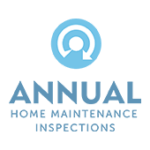
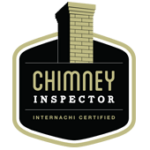
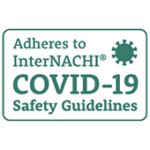



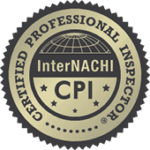
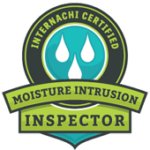

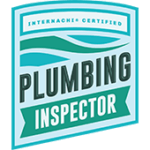
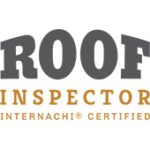
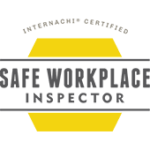



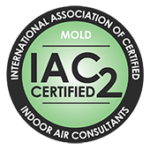

One Response
Interesting article